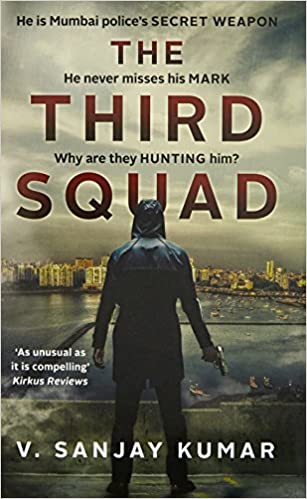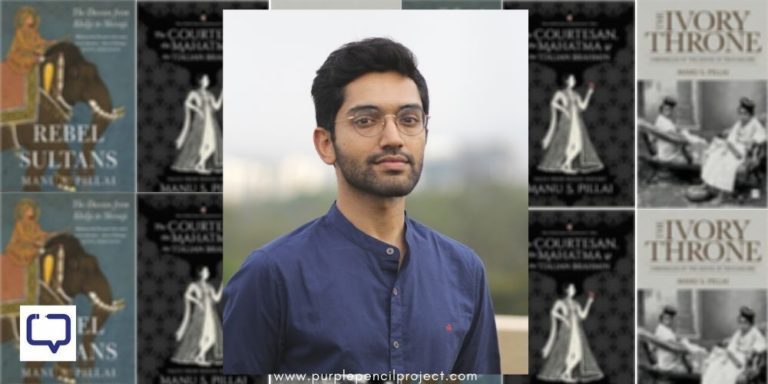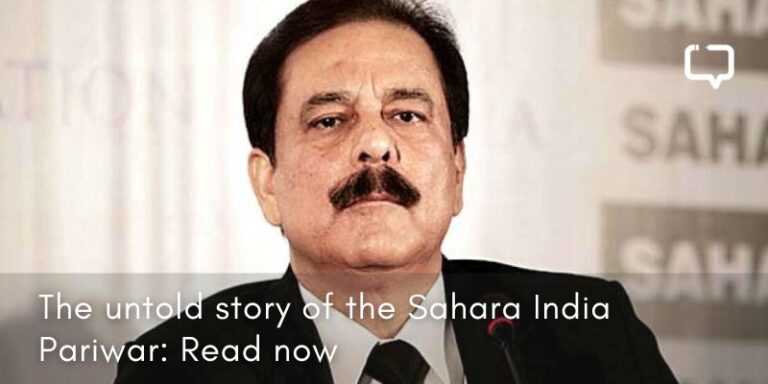“You may not open a book if you hate its cover,” says this book critic. “So it helps to have it well designed.”
I open the packaging and am supremely disappointed. On the book cover is the figure of a man, his back to the reader, one hand holding a gun, looking at the skyline of Mumbai. In a horrendous san serif font is the title of the book, and for some strange reason, the three lines that could have made the back blurb are written in between the title.
We encourage you to buy books from a local bookstore. If that is not possible, please use the links on the page and support us. Thank you.
I open it, I have after all agreed to review it, and am taken aback. The neat, yellow-ed pages are a stark contrast to that very repulsive book cover. We begin with our hero training with his batchmates, and immediately the problems that will plague the whole book present themselves.
I am now labouring through, pencil in hand, making lines under those sentences I wish to pull apart. It is an urge and I cannot help it. Publishing a book, at whatever scale, is an investment and I wish an editor had the chance to go over this once before it went to print.
In the opening pages, Karan talks about his batchmates Munna, Kumaran and Tapas and his reporting authority, Ranvir Pratap and their last days at the police training academy.
Review: Part 1
The First Flaw
Here, we are introduced to Karan’s life in Mumbai, after he has passed from police training to active duty. He has been assigned to special duty, the titular Third Squad, or the encounter team of the city police. His first encounter is a local don, Swamy, a Tamilian who began his career as a porter at the railway station and between 1975 and 1985, built a fearsome network of local thugs.
Karan, along with his batchmates form the special-member team, and each of them is at a different level of autism spectrum disorder. Karan has mild Asperger’s.
As we meet Karan’s bosses and are introduced to his world, we realise that this is a world of fiction rooted in reality. You will see familiar names like Manya Surve and Daya Nayak spring up and the reader will be assumed to know who they are.
It becomes gripping, and you see Karan, almost always on auto-pilot, shift between duty and melancholy, the need to be tacit and the need to snap out. Sentences like “after dinner was ingested” will annoy you.
Comment 25 (and others)
What about the 24 other comments? They will all probably sound similar so it’s best to skip them. Now come the good bits. We are introduced to the chawls and shops of Mahim, Navi Mumbai and Fort. The city is slowly unfolding to us. The people are still scuttling in and out; Tiwari the head of the kabri team, Ms Daftary the psychologist, Churi Ram the next encounter Karan, Nandini his wife.
The book plods along; we are introduced to every encounter of Karan, every power struggle between Ranvir Pratap and Tiwari, and every effort by Nandini to live a normal life, ignoring yet confronting the fact that her husband kills for a living. In some moments, you wonder how the scene is progressing and then forget it. People write books across the world and in India, a story with potential is killed through lack of editing.
Casting an expert eye
Nandini, a Pune girl, wants to “disrupt Mumbai”. She’s a heritage tour organiser and is always looking for the story of every day that is often ignored. But what are the stories? We never know. Instead of telling us, Kumar could have just actually introduced a secret of the city.
Ranvir Pratap and Tiwari’s conflict begins to come to the fore – and so does, for the first time, their senior Parthasarthy. Karan is asked about his emotional quotient, if he felt pain, and if he is a person of ‘feeling’, by Ms Daftary.
City Happenings is a good chapter, and here Kumar shows his potential as a writer; he can write about a place with many flavours but when it comes to his characters, they are all devoid of a great distinctive voice, even when they have well-fleshed-out personalities.
For instance, Tiwari is described as someone who cannot speak English well. But this does not reflect in any of his dialogues, which are grammatically sound. It takes an entire chapter to bring out the profiles of characters like Ranvir Pratap and Nandini, something which would have worked far better had these chapters come at the beginning, or the characters’ stories integrated in the narrative. As it is, one chapter later, we greet another paragraph about how Ranvir functions. It’s a waste of words and the readers’ time.
The story moves. Nandini has a stillborn baby and this takes about a page and one TED talk to get over. Then we meet Evam Bhaskar.
Review: Part 2
Now the story gets moving. Ranvir and Tiwari and Karan and Munna and Evam Bhaskar begin to inch toward the end. We meet Karan’s past through Evam’s files. Evam is a child psychologist and all of the Third Squad were once his ‘patients’’. Finally, we are told what Munna, Tapas and Kumaran do in the squad, as they prepare to ambush an enemy. We now find out Tiwari’s full name is Dharamdas Tiwari (169 pages in). The departments are introduced, and how they function. Mishra enters the book.
Review: Part 3
We are now on encounters 33 and 34 and 35. And the action stops taking time leaps and breaks down into a daily account. And Karan is being framed and there is an attempt to finish him off.
The Third Squad is a book that tries to make a lot of sense but ends up using too many roundabout ways to do it. At the onset, it could have been a brilliant thriller, and one which explored what having Asperger’s could be. In many ways, it does. Karan’s inability to feel as strongly or express it, his seemingly singular talent of shooting on point, his relationship with Nandini, the politics of the police, and the city of Mumbai play a role in everyone’s lives.
It’s a great cops-and-bhai detective thriller. There is a plot, and to an extent, there is even poetry.
But all of this gets lost in the laborious, confusing way Kumar tries to write. Characters are introduced almost on a loop and that’s done so often that at some point, it overshadows the plot. You never get a grip on the story as a reader, simply because just when you think you have met one character, some bit of information about him resurfaces and breaks the flow. It is like being at an amazing party, and every time you get into the groove, either a new guest or a drunk old uncle keeps returning to break that rhythm.
There is no time for the thriller to the peak. No resounding climax, no gradual build-up. The pace stays the same, and the tone of the writing doesn’t change with time. And that is perhaps its biggest and only true flaw.
Favourite Quote:
Chawl people borrowed sugar salt and each other’s thoughts. You listened to the neighbours’ radio and watched their lives play out like they did yours.
Recommended Age Group: 17 and above























